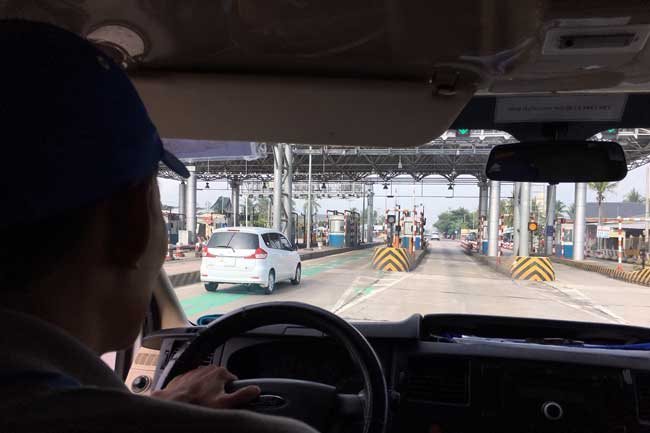 |
| Vehicles are seen passing through a tollgate in the Mekong Delta |
The State Bank of Vietnam (SBV) said in a recent report sent to the National Assembly that offering credit to BOT traffic projects would be risky because most of these projects require significant investment capital, requiring long-duration loans; meanwhile, the financial capacity of project owners is limited.
Their mortgages are mostly based on the right to collect toll fees, while the policy for fee collection is unstable, the SBV stated, adding that credit for BOT traffic projects is likely to be transferred to the bad debt category.
SBV reiterated its position on the risk of extending credit to the property sector, suggesting that the property law is still inadequate, especially in terms of regulations for new products such as condotels and officetels.
Also, property trading promises large profits, easily leading to a speculation situation for the market, where the imbalance between high-end and affordable houses remains unresolved.
Apart from these two sectors, the stock market poses a great concern, SBV said.
Vietnam’s stock market is lagging behind those of developed countries. The accounting standards and transparency have not caught up with international standards.
The framework of regulations for the local stock market remains incomplete, posing a potential risk for investors and credit institutions, the central bank in the report.
Relevant to bad debts, the SBV claimed that the bad debt ratio at credit institutions is still being settled and is being controlled at a rate below 3%.
Specifically, from 2012 to March 2019, all credit institutions had settled some VND907 trillion worth of bad debts. As of late March 2019, the bad debt ratio was posted at 2.02%. SGT
 Traffic projects under the build-operate-transfer (BOT) format, after the property sector, are now on the list of borrowers deemed to be risky clients for banks over the long term.
Traffic projects under the build-operate-transfer (BOT) format, after the property sector, are now on the list of borrowers deemed to be risky clients for banks over the long term.